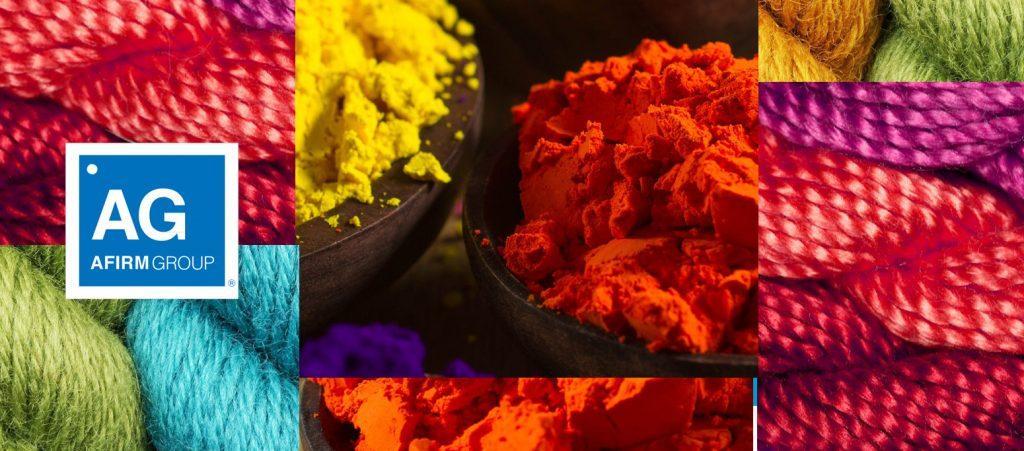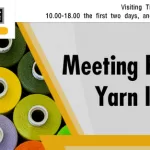 AFIRM is the Apparel and Footwear International RSL Management (AFIRM) Working Group, established in 2004. AFIRM’s mission is “to reduce the use and impact of harmful
AFIRM is the Apparel and Footwear International RSL Management (AFIRM) Working Group, established in 2004. AFIRM’s mission is “to reduce the use and impact of harmful
substances in the apparel and footwear supply chain.” AFIRM’s purpose is to provide a forum to advance the global management of restricted substances in apparel and footwear, communicate information about chemical management to the supply chain, discuss concerns, and exchange ideas for improving chemical management.
AFIRM continues to be a recognized global center of excellence, providing resources to enable continuous advancement of chemical management best practices. We do this based on transparency, science, and collaboration with relevant industries and experts to build safer and more sustainable chemistry within the apparel and footwear supply chains. It is understood that in adopting this vision, AFIRM’s mission, objectives, and projects will continue to be product-focused or RSL-related.
The AFIRM RSL is not intended to and does not establish any industry standard of care. The AFIRM RSL may not always provide the most appropriate approach for any individual company’s chemical management program. Many brands have implementation guidelines, and suppliers must follow those guidelines where required. The AFIRM RSL does not constitute legal advice and is not a substitute for legal advice.
AFIRM has created the following Restricted Substances List (“AFIRM RSL”) to assist and guide supply chain participants seeking to increase product quality and safety or reduce their environmental impact by limiting the use of certain substances in apparel and footwear.
[pdfviewer width=”600px” height=”849px” beta=”true/false”]https://www.newclothmarketonline.com/uploads/restricted-chemicals.pdf[/pdfviewer]Additional Substances and Parameters to Consider
EU REACH Substances of Very High Concern
Based on scientific evidence indicating potential hazards to human health or the environment, the European Commission (EC) and European Union (EU) member states propose substances of very high concern (SVHCs) for placement on the European Chemicals Agency (ECHA) “Candidate List of Substances of Very High Concern for Authorisation.” Placing a substance on the Candidate List triggers specific obligations for importers, producers, and suppliers of any article that contains one or more of these substances above 0.1 percent by weight per component. The obligations include providing sufficient information to allow safe use of the article to brand and retail customers or, upon request, to a consumer within 45 days of receipt of the request.
In addition, ECHA must be notified if the substance(s) are present in article components above 0.1 percent in quantities totaling over one ton per producer or importer per year. Notification is not required if the substance has already been registered for that use or when the producer or importer of an article can exclude exposure of humans and the environment during the use and disposal of the article. In such cases, the producer or importer must supply appropriate instructions to the recipient of the article.
ECHA periodically updates the Candidate List; find the most current version here. AFIRM member brands may differ on how they address SVHCs as well as the legal obligations. AFIRM advises suppliers to consult with their customers regarding brand-specific requirements for SVHCs.
California Proposition 65 Substances
Each year, California publishes a list of chemicals known to the state to cause cancer or reproductive toxicity. Businesses that expose individuals to one or more of these chemicals must provide a clear and reasonable warning before the exposure occurs. For consumer products, this is typically through warning labels on the products or retail signage. Note that this warning is not the same as a regulatory requirement indicating that
the product is “unsafe” if a specific concentration is exceeded. Enforcement is carried out through civil lawsuits brought by the California attorney general, district attorneys, or private parties acting in the public interest. Additional information can be found here.
AFIRM member brands may differ on how they address warning-label requirements. AFIRM advises suppliers to consult with their customers regarding brand-specific requirements for Proposition 65 substances.
Specific In-country Testing and Certification Requirements
Some countries—such as Korea, Russia, and Saudi Arabia—have specific requirements for certain products. This includes requiring that testing be performed at an approved laboratory in-country, special certification marks, and even unique testing not required by any other country. The AFIRM RSL covers these substance limit requirements, but test methods may vary, and AFIRM member brands may differ on how they address these legal
obligations. AFIRM advises suppliers to consult with their customers regarding brand specific requirements for countries which may have specific testing and/or certification requirements.
Biocides, Nanoparticles, etc.
Some brands may have specific requirements regarding the use of substances of concern such as biocides or nanoparticles. AFIRM recommends checking with your customers regarding individual policies or requirements.
AFIRM Group Members
| adidas
Amazon ASICS Bestseller C&A Carhartt Decathlon Descente |
ECCO
Esprit Fast Retailing Gap Inc. H&M Hugo Boss Inditex KIABI |
Kontoor Brands
Kroger Lacoste Levi Strauss & Co. lululemon Mizuno NIKE, Inc. Pentland |
PUMA
PVH Skechers s.Oliver The Children’s Place Thinx Inc. Under Armour VF Corporation |
AFIRM member brands may differ on individual parameters; suppliers are advised to check with the customer regarding brand-specific requirements.






